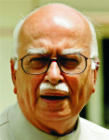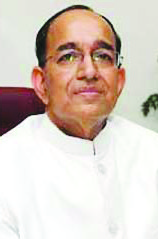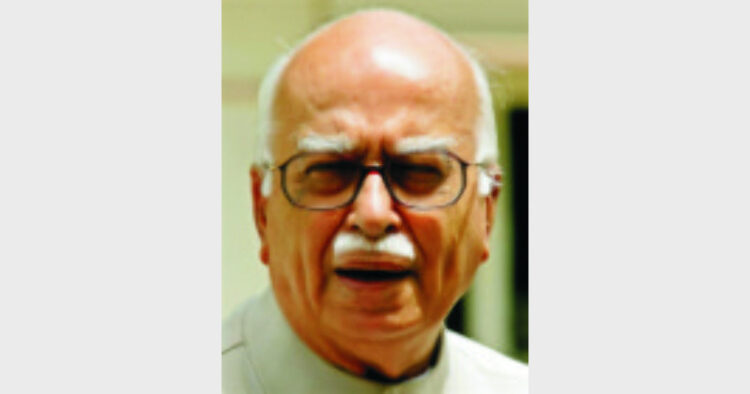Debate on selection of CEC
Shivaji Sarkar
 It is time to reconsider the mode of selecting persons for key constitutional bodies. The nation also needs to look at why such important positions should be the preserve of bureaucrats.
It is time to reconsider the mode of selecting persons for key constitutional bodies. The nation also needs to look at why such important positions should be the preserve of bureaucrats.
Holding the elections is an onerous task. While at the booth level the task could be conducted by officials, at the level of Election Commission the presence of an official is not required.
Over the years, this nation has almost gone into the belief that unless one belongs to the coveted bureaucratic system, he could not be trusted with the functions of many such constitutional bodies.
 While other positions can be discussed later, the position of Chief Election Commissioner is of utmost importance for the present. The present incumbent S Y Qureshi is retiring and a replacement is needed.
While other positions can be discussed later, the position of Chief Election Commissioner is of utmost importance for the present. The present incumbent S Y Qureshi is retiring and a replacement is needed.
Senior BJP leader Shri Lal Krishna Advani has rightfully raised the issue of the selection CEC and some other constitutional functionalries.
The Chief Election Commissioner (CEC) heads the Election Commission of India, a body constitutionally empowered to conduct free and fair elections to the national and state legislatures. The CEC has been a member of the Indian Civil Service in the initial days and later mostly from the Indian Administrative Service or Indian Revenue Service.
In the backdrop as we look at, it appears almost from persons from only one service has been dominating the office of Election Commission with possibly an exception in GV Krishnamurthi. It is not to say that except one or two who exemplified bias in their functioning most others behaved in a neutral manner.
It has also been witnessed that at times a CEC, in his zeal to prove different took arbitrary decisions, and even behaved in the most awry manner.
That is how the tenure of TN Seshan would be remembered. While the office has always been an important one in the machinery of the Indian political process, it gained significant public attention during the tenure of Seshan from 1990-1996. Seshan is widely credited with undertaking a zealous effort to end manipulation in Indian elections. His methodology was arbitrary. He did not care for the confabulations as is the requirement in a democratic tradition.
His method of calculating poll expenses virtually was whimsical. Since then the campaigning process has become too sanitised. Congress leader late VN Gadgil once said that Seshan has made us leave vehicles a kilometer or two away. He made us cut down on garlands, as his officials added the expense on garlands to the candidates’ spending.
Needless to say Seshan introduced arbitrariness and rules which are to be found nowhere except in the whims and fancies of the officials mind.
Seshan one may ask had little concern for democratic niceties. Either at the EC headquarters or elsewhere his behaviour demonstrated the contempt for the political process. It also exemplified the audacity of an official mind. It appeared he took vicarious pleasure in humbling the tall political leaders and their parties.
He forced them to accept a “model code of conduct”, which has little practicability. The first Prime Minister Jawaharlal Nehru used to say election as the greatest education process. The campaigning used to be lively with discussions extending beyond midnight. The ruling and opposition parties used to bring out critical issues before the people. It was a national festival.
Seshan has put an end to it. His successors, including Qureshi, continue with it. The bureaucrats with their fixed working hours had more concern for going to sleep at the designated hour. An army of orderlies serve them. Unlike politicians they never had to slog on the roads and toil with the masses, who they consider as the dirty people, a legacy of the British mindset. The Indian Civil Service was obsessed with cleansing the Indians. The successive service also has the same mission.
So late campaigning was anathema for them. Seshan represented the mindset in a brazen way. He effectively put down shutters on that process. Now the campaigning has become so formal an affair that issues are not discussed.
He and his successors even forced a procrastinated election schedule. They did not realise that it has increased the cost. In many cases, campaigning extends to beyond 45 days. Those who have to contest the election in the last phase, as it happened in the recent UP elections, have to bear the brunt of such extended poll campaigning. There was little rationale in holding the elections in seven phases.
Such long poll process quite often changes the major issues. It leads to convoluted process of polling. Quite a few times this nation and many states have paid a heavy cost for not decisively voting.
Political parties have to bear the cost for the failure of the administration in holding elections in the shortest possible time in peaceful and fair manner.
Political parties should not have accepted all that was forced on them. The bureaucrat turned constitutional functionaries are not masters. Somehow political parties did not realise. In the name of stopping booth capturing and ensuring free elections, the chief election commissioners come out with Tughlaqi orders, the last state elections were no exception.
There have been many aberrations in the functioning of EC. In many cases, it had to eat the humble pie.
Poll process in many ways has become politically less acceptable. This has to be reversed.
But if once again the CEC is from the bureaucracy, any change in the process would be a daydream.
This is the time to change it. The high constitutional position and other EC members should now be chosen from those who understand the political psyche and functioning. They can be from political functionaries, journalists and other conscience citizens.
The selection process should not be vested with the ruling combine. A process of a committee should be set up to ensure the selection of CEC and other EC members. This is a mature nation. Political parties have acquitted themselves well. They should be given the task of selecting the right person to conduct the process.
A non-bureaucrat can do that better and restore the vibrant electioneering. Let us break the tradition and usher in a new democratic order. Let us also accept that without political input constitutional bodies cannot function in appropriate manner.














Comments